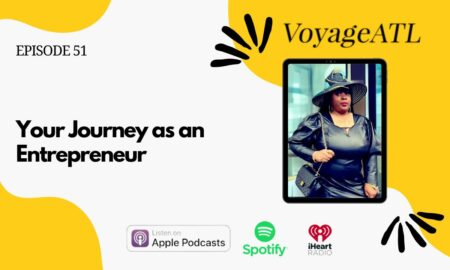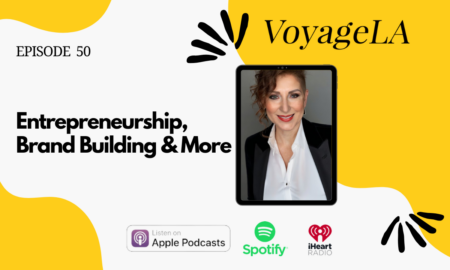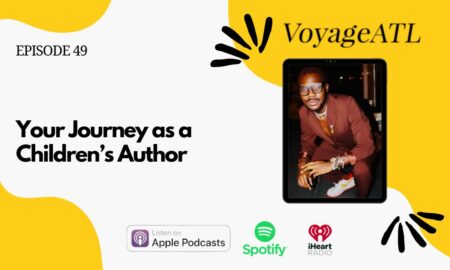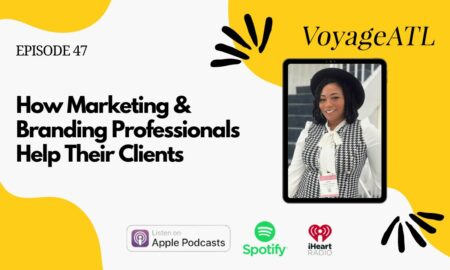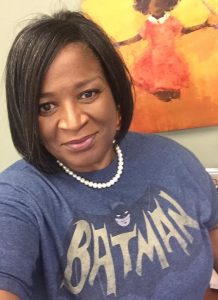
Today we’d like to introduce you to Stacey French-Lee.
Thanks for sharing your story with us Stacey. So, let’s start at the beginning and we can move on from there.
I am who and where I am today because of the important values my family of origin instilled within me and the resources and support that they provided.
For example, my father’s constant affirmation from as early as I can remember was that I am “young, gifted, and Black” and he emphasized the importance of higher in his parenting. My mother shaped who I am today by raising me within the context of the church where I sang as a child, “Jesus loves the little children… red, and yellow, black and white, all are precious in his sight,” and by introducing me to the Bible where I found in the book of Solomon that I am Black and beautiful. Because of my parents, I have known since 1963 that I have Black girl magic.
Finally, I am who and where I am today because of my siblings Alyce, Angela, Yolanda, and George, Jr. When we were children, Alyce, the oldest, often led us through our Black middle-class neighborhood with her calling out, “Am I Black enough for you?” and us responding, “Hell yeah?” and “Say it loud” and us responding, “I’m Black and I’m proud!” My siblings taught me to unapologetically tell the world that I am Black excellence. I have also gotten to where I am today because of my husband’s selfless support and encouragement.
Great, so let’s dig a little deeper into the story – has it been an easy path overall and if not, what were the challenges you’ve had to overcome?
It has been relatively smooth for me because I have been prepared from birth to navigate social systems of oppression. In many ways, I was raised to know what to expect from society, as a Black woman, and also to know my worth and value and gifts. I was socialized by my parents with the navigational capital to negotiate institutional, structural, patriarchal, and economic systems of oppression. I know how to navigate and exist within, while working to dismantle those structures. To be sure, I have certainly experienced barriers based on systems of hegemony, but I have been supported and encouraged to find ways and make ways through these barriers. For people who were not prepared to live life at the intersection of their race and gender and class, navigating these systems and structures would likely not be as smooth as it has been for me.
Another thing that has made my journey smoother is that I have been connected to people who have mentored and supported me and have seen my gifts and helped me develop them. I’ve spent most of my career in Atlanta and one of the main people who has made the road smooth for me is former Fulton County Commissioner, Dr. Nancy Boxill. When I came to Atlanta, she took interest in me and became my friend. She mentored me on my career trajectory and encouraged me to go on to get my Ph.D. She connected me with and was friends with strong Black women leaders in Atlanta who are influential, smart, and connected and who shared some of the same commitments for elevating others and working toward racial and intersectional justice that I hold. Finding communities of support, mentors who help us navigate and connect to others in the work, and building networks is so important.
Over the course of my career at Georgia State University I have been fortunate that every program chair and every dean has been tremendously supportive of me, and have found ways to help me use my interests, gifts, and talents in ways that connect with the University’s and the College of Education and Human Development’s mission.
Please tell us more about your work, what you are currently focused on and most proud of.
I’ve been an early childhood education advocate and practitioner in Europe and the USA for over 30 years. I have experience in military, corporate, and university settings. I’ve been doing this work in Atlanta for about 26 years. I earned my undergraduate degree in Communicative Disorders from Spalding University, in my hometown of Louisville, Kentucky. I earned my M.Ed, Ed.S, and Ph.D. in Early Childhood Education from Georgia State University.
I’m a Clinical Assistant Professor in the College of Education and Human Development, Department of Early Childhood and Elementary Education at Georgia State University and the Executive Director of the Child Development Program at the University. The Child Development Program consists of two facilities; The Lanette L. Suttles Child Development Center and the Capitol Hill Child Enrichment Center. I provide consultation services to early childhood programs, agencies and foundations. I am most proud of the work I do at Georgia State University. I have the opportunity to interact with and have a positive impact on the early care and education of the youngest members of our campus community AND I get to teach undergraduate and graduate preservice and inservice teachers.
I serve on the Board of Directors of two schools in Atlanta. I collaborate with others on the Board of Directors at Drew Charter School and my work there is primarily focused on racial and educational equity. I am also a board member at The Boyce Ansley School which was developed to support and serve learners and families in the Atlanta community who are experiencing homelessness and housing insecurity.
In all of my endeavors, I work to create networks of support (for and with children, preservice and inservice teachers, leaders, faculty, creatives, community leaders) of individuals who envision and work for change and who mutually support, challenge, and encourage each other. I study and teach about racial socialization, cultural community wealth, and am grounded in critical race theory and intersectionality. Taken together, these are frameworks that focus on equity, racial and social justice. I view the world with these lenses and think about equity in all of the spaces I join. In each context, I create spaces for subversion and to engage in challenging conversations which move toward action. Through all of these lenses I work to ensure that the lives of children are valued, respected, honored and that they are able to live full lives of justice, opportunity, and equity.
One thing sets my work apart is that I am always engaging, troubling, and deconstructing the idea and ideal of “child’ and ‘childhood.’ This question shapes my perspectives and calls me to engage with others asking questions centered not only on ideas of “quality,” and “best-practices,”, but also in ways rooted in questions such as ‘Who gets to decide what is quality? Who has access? Who profits and who is not well supported through these paradigms?”
It would be great to hear about any apps, books, podcasts or other resources that you’ve used and would recommend to others.
Podcasts:Cite Black Women; Teaching in Higher Ed; Ratchet & Respectable; Stepping into Truth: Conversations on Race, Gender, and Social Justice; Red Lip Theology; Qualitative Conversations: AERA Qualitative Research SIG; Intersectionality Matters.
Books: (A few of my favorites!). We Want to Do More Than Survive: Abolitionist Teaching and the Pursuit of Educational Freedom, by Bettina Love. Black Feminist Thought, by Patricia Hill Collins.
Cultivating Genius: An Equity Framework for Culturally and Historically Responsive Literacy, by Gholdy Muhammad. Intersectional Analysis as a Method to Analyze Popular Culture: Clarity in the Matrix (Futures of Data Analysis in Qualitative Research), by Erica B. Edwards and Jennifer Esposito.
The New Jim Crow: Mass Incarceration in the Age of Colorblindness, by Michelle Alexander. Black Feminism in Qualitative Inquiry: A Mosaic for Writing our Daughter’s Body, by Venus E. Evans-Winters.
Contact Info:
- Email: sfrench-lee@gsu.edu
- Twitter: @SFrenchLee



 Image Credit:
Image Credit:
Stacey French-Lee and Moses Lee
Suggest a story: VoyageATL is built on recommendations from the community; it’s how we uncover hidden gems, so if you or someone you know deserves recognition please let us know here.















